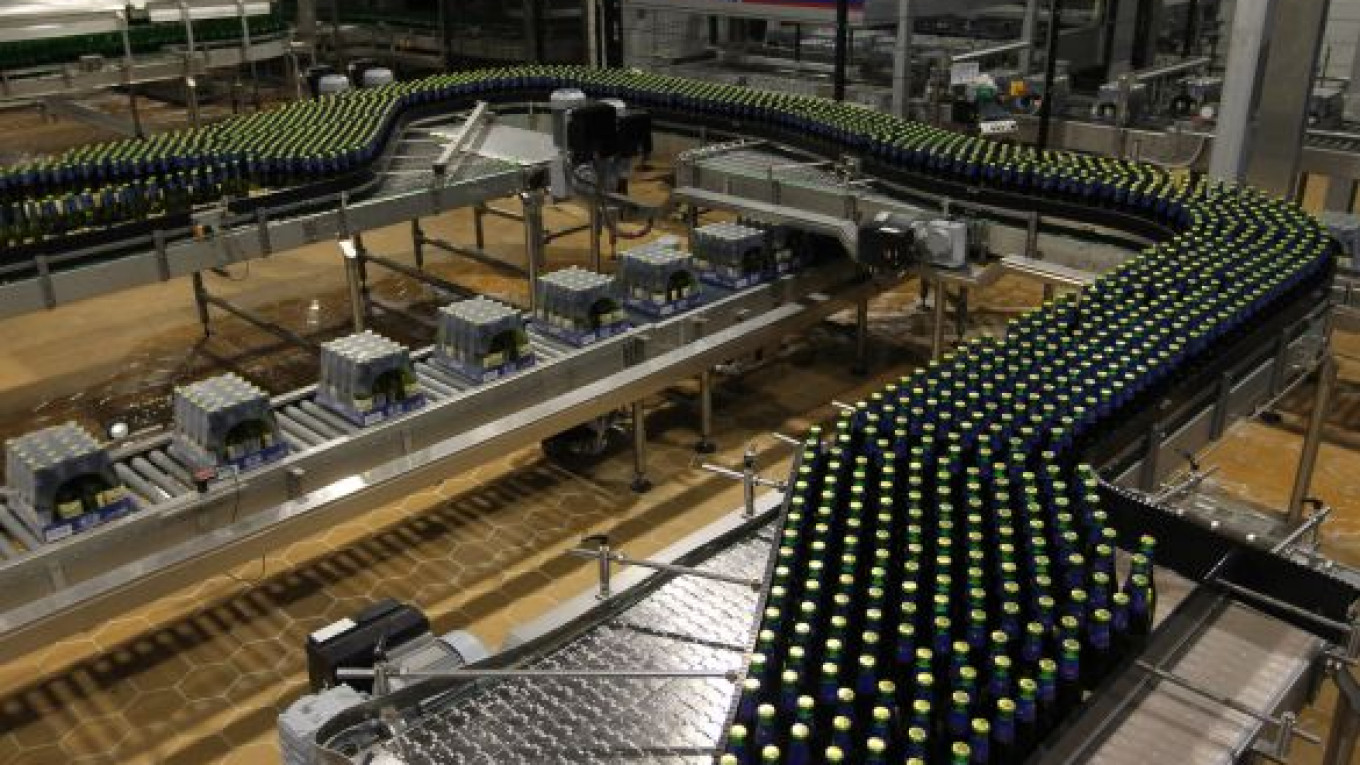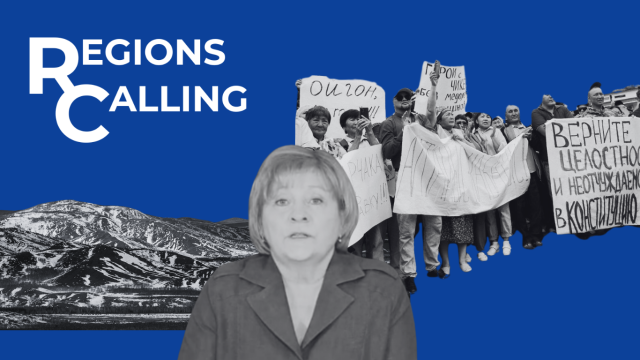Struggling with a flat economy and escalating government regulation, Russia's beer market is on course to shrink by 25 to 30 percent from its 2008 size by the end of 2014, said Isaac Sheps, chairman the Union of Russian Brewers.
By this estimate, beer production will decrease to between 7.7 billion and 8.2 billion liters by the end of the year, down from 9 billion liters in 2012 and 8.1 billion liters in the first half of 2013, Vedomosti reported Thursday.
The market's troubles can partly be ascribed to a series of government actions aimed at combatting Russia's endemic trouble with alcoholism.
In an attempt to protect citizens from excessive alcohol consumption, advertisements for alcoholic beverages have been banned from the streets, mass media and the Internet. Street stands, formerly prime locations for beer sales, are now off-limits, and stores are only allowed to sell alcohol until 11 p.m. A hardline zero tolerance policy on drinking and driving dating from 2010 was scrapped in July.
Excises on beer sales have also soared, from 2.74 rubles in 2009 to 15 rubles in 2013, and are expected to rise even further.
Efes, SABMiller, and AB InBev all saw sales drop throughout Eastern Europe in the first half of 2013, with AB InBev losing 13.1 percent of its previous sales volume.
Beverage giants Carlsberg and Heineken both reported revenue decreases in the region, of 1 percent and 3.8 percent respectively, despite Carlsberg having managed to increase sales volume by 3 percent.
"It is very difficult to deal with the excises and the restrictions that have already been adopted," Efes's director of external communications said.
Spokesmen from two major brands, Heineken and Ochakovo, said their companies had decided to focus on the release and promotion of premium products, which are less susceptible to market contraction.
A Message from The Moscow Times:
Dear readers,
We are facing unprecedented challenges. Russia's Prosecutor General's Office has designated The Moscow Times as an "undesirable" organization, criminalizing our work and putting our staff at risk of prosecution. This follows our earlier unjust labeling as a "foreign agent."
These actions are direct attempts to silence independent journalism in Russia. The authorities claim our work "discredits the decisions of the Russian leadership." We see things differently: we strive to provide accurate, unbiased reporting on Russia.
We, the journalists of The Moscow Times, refuse to be silenced. But to continue our work, we need your help.
Your support, no matter how small, makes a world of difference. If you can, please support us monthly starting from just $2. It's quick to set up, and every contribution makes a significant impact.
By supporting The Moscow Times, you're defending open, independent journalism in the face of repression. Thank you for standing with us.
Remind me later.






